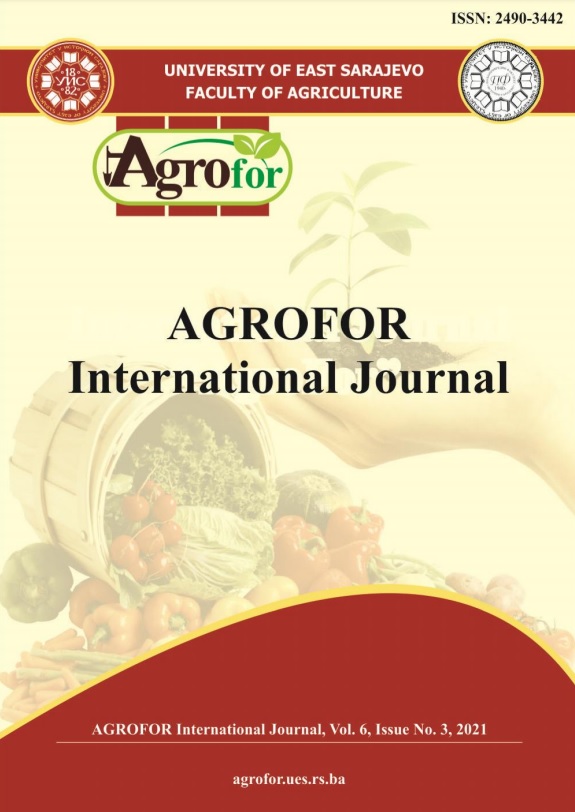TRANSITION TO ORGANIC AGRICULTURE IN MOROCCO
DOI:
https://doi.org/10.7251/AGRENG2103005EAbstract
Agriculture is a vital sector in Morocco; it contributes 13% to the gross domestic product and employs around 30% of the total workforce and 70% in the rural areas. This puts agriculture in a sensitive spot where it affects the livelihoods of a great proportion of the population. Moroccan agricultural development programs (viz. Green Morocco Plan 2008-2019 and Green Generation 2020-2030) aim to enhance the livelihoods of farmers by focusing on the valorisation of small farms and rural areas through the development of protected geographic indications (PGI), cooperatives, and organic farming. This review paper describes the dynamics and development process of the organic agriculture niche in Morocco through the lens of the Multi-Level Perspective (MLP) on socio-technical transitions. The MLP is a widely used framework that bases its analysis on transitions being the result of the interaction of niches, socio-technical regimes, and socio-technical landscape. Niches represent novelties, regimes are the incumbent and dominant systems, and the landscape includes the external factors that affect both regimes and niches and shape their development. Results show that although the organic niche is well established (11,000 ha of organic land area in 2019), it is still developing at a slower rate than expected. While organic farming does solve many sustainability challenges that Moroccan agriculture faces, it still lacks the infrastructure and human capital to succeed as a niche. All in all, organic farming is still in the first transition stages and can follow a multitude of pathways before becoming relevant in the current agri-food system.
Keywords: sustainability transitions, Multi-Level Perspective, agri-food system, organic farming, Morocco

